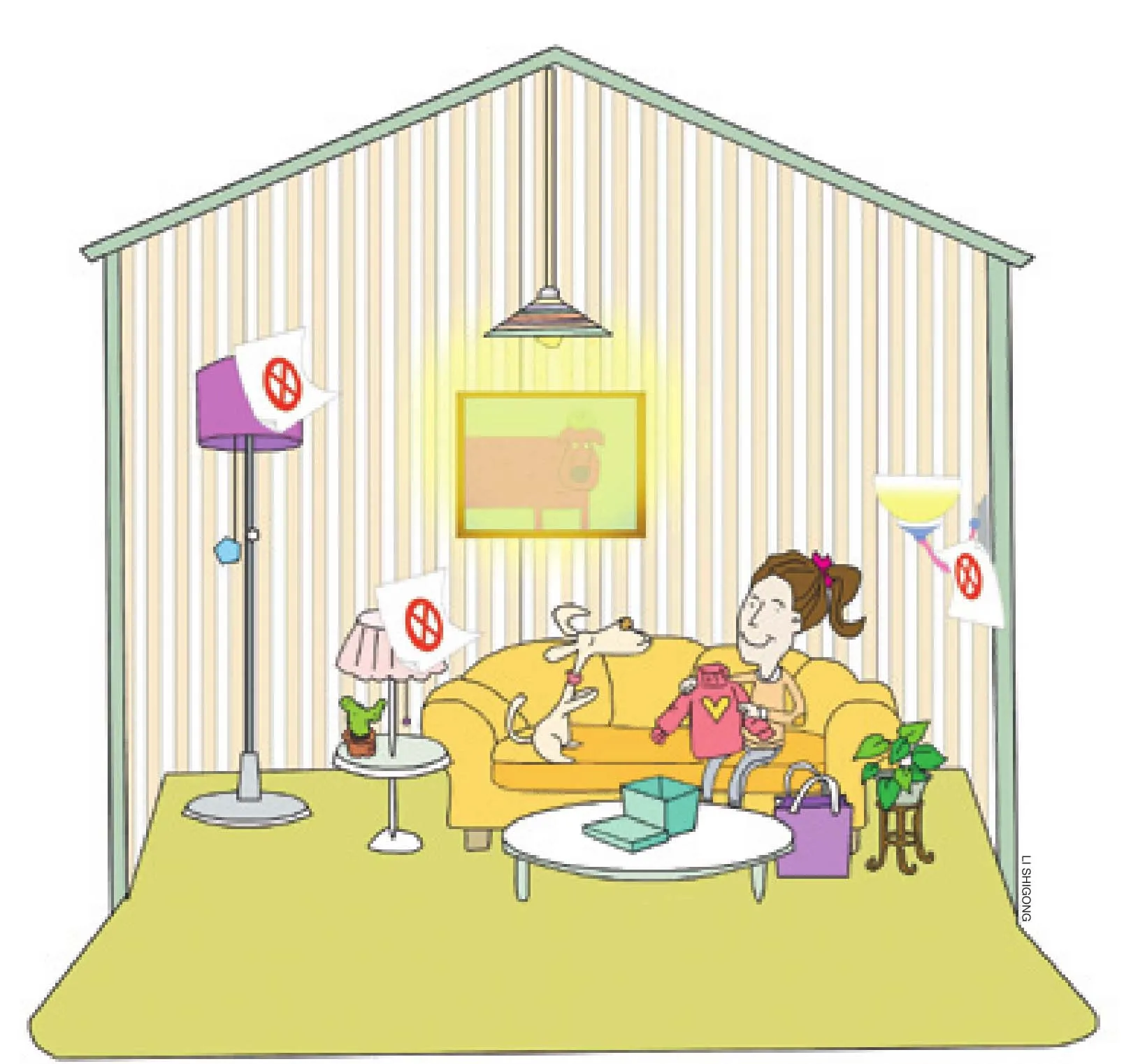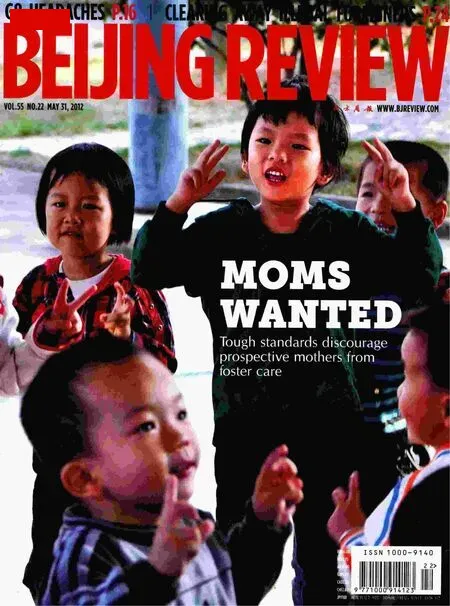Is Tiered Pricing For Electricity a Good Idea?
Is Tiered Pricing For Electricity a Good Idea?
The National Development and Reform Commission of China (NDRC) came up with a draft for tiered pricing of household electricity in March. After nationwide hearings, the new pricing policy will be carried out from June. It also sparks heated debate on whether tiered pricing of household electricity is appropriate in China currently. The following are excerpts of some opinions on media.
Ding Yongxun (www.xinhuanet.com):The public has long appealed for tiered pricing for electric power. However, whether the pricing reform can be successful depends on whether the reform plan is able to cover both ef fi ciency and fairness and will promote energy saving. Electricity price is a big concern for families, but it seems that the public is not enthusiastic about the hearings and has some worries about the pricing reform.
The public is now mainly considering three problems. First, will tiered pricing become another round of price hikes? According to the NDRC, 80 percent of households will continue to enjoy the current price. The consumption that exceeds the basic amount will be charged at a higher unit price.
Second, what should be a reasonable quota for the base consumption? If the amount is too low, then it will be easily exceeded, which will affect people’s daily life. If it’s too high,then the public might be encouraged to waste electricity. Additionally, electricity consumption differs between different regions, urban and rural areas and families, and so it’s not easy to set up a uni fi ed standard.
Third, will the tiered pricing worsen inflation? China’s electricity price has long stayed at a low level, but with the increasing cost of energy production, electricity prices are doomed to rise, too. However, the rising cost of water, electricity and gas will add to people’s economic burdens.
Xun Yao (Jinan Daily): Tiered pricing for electricity will play the role of leverage.To set a low price for a certain amount of electricity consumption will help to ensure the poor’s basic living. This leverage will help to save energy. China mainly depends on thermal power. But coal is an unsustainable resource, so tiered pricing is actually encouraging energy saving.
If people are charged at a higher price because they consume more than the quota,then most of them will choose to cut their electricity use. If the price of electricity differs at different sections of the day or season, spiking during the peak season, for instance, then many people will choose to consume less during these periods.
At present, tiered pricing is not fully accepted by the public yet. Most people worry that the so-called tiered pricing may turn out to be an excuse to raise electricity prices.
He Yong (Dazhong Daily): Tiered pricing for electricity is not a price hike, because it will have little impact on the daily life of the majority. Currently, household electricity use accounts for only about 10 percent of the total consumption in the country. Raising the electricity price will do little to resolve the problem of electric energy scarcity.
Only those families with big electricity consumption will have to pay a higher price for usage. But they are mostly middle- and high-income families and so won’t be affected.
By adopting tiered pricing for household electricity, the Chinese Government intends to promote social fairness and energy conservation on the basis of ensuring the public’s basic right of living. Under the tiered pricing system, low consumption families’ living standards will not be affected, while high consumption families will have to pay a higher price for their overuse. In this way, some families might be discouraged from excessively consuming electricity.

Better yet, the fundamental way to relieve electricity shortages and stop power plants from losing money is to break up monopolies within the power industry so that power plants can enjoy more profits, rather than rely on price hikes or tiered pricing.
Liu Chunyin (The Beijing News):The tiered pricing for electricity intends to maximize fairness and ef fi ciency in electricity consumption. In modern times, electric products like fridges, air conditioners, washing machines and micro-wave ovens are in wide use among ordinary families, and so the basic consumption quota should not be set too low.
An investigation conducted byChina Youth Dailyshows that 81.7 percent of the 2,432 respondents say that they expect the price can be set higher for excessive consump-
LI SHIGONG tion and lower for the minimum consumption.
Electric grid companies should try to reduce their costs by upgrading technology and improving management, not just raising electricity prices. The interests of the country,the electric power industry and the public should all be paid attention to, but the public’s interests should come fi rst. A reasonable price reform should not add economic burdens to middle- and low-income families.
Yuan Junbao (news.enorth.com.cn):Some representatives to the tiered pricing hearings say that the quota for basic consumption in their regions is too low to satisfy daily use. Therefore, necessary data for household electricity consumption should be open to the public to increase the credibility of the pricing reform.
In some provinces, the consumption difference between rural and urban areas is neglected, and the pricing reform draft has not considered the difference of each family in terms of total family members. Also, the difference of consumption in different seasons is also neglected. For example, people tend to consume more electricity in summer and winter than at other times. Lastly, how to use the extra pro fi ts from an electricity price hike should be made open to the public as well.
Deng Yuwen (www.dayoo.com): The plan to raise the price of household electricity is based on the reality that China’s energy shortage is accompanied by the waste of energy. If we mean to leave some resources to future generations, we have to make some sacrifices, like accepting a price hike for electricity.
For so many years, in order to promote rapid economic growth, the prices of many resources, including water, electricity, gas, petroleum and land, have been strictly controlled by the government at a very low level. As a result, there is serous waste and also severe environmental pollution. Take the electric power industry as example. At present, 70 percent of China’s electric power is generated by coal, and this industry is a major polluting source in China.
In order to realize sustainable economic growth and environmental protection, the price of resource products must re fl ect the realistic condition of certain resources: Whether it is in short supply or is seriously polluting the environment, and so on.
As the problem of energy and environment becomes increasingly striking, the leverage of price will be an important tool to curb unreasonable energy consumption and thus reach the goal of environment protection.
Today, high-income families, which make up 5 percent of the whole, consume 24 percent of the total household electricity consumption. But the fact is that household electricity consumption is now enjoying state subsidies. Obviously, the subsidy is encouraging extravagance in energy consumption.
According to the NDRC, the new pricing system will be divided into three tiers.The price for the quota of the first tier,which was set based on the average use of 80 percent of China’s households, will remain unchanged. If a family consumes more than the average quota, they’ll have to pay a price that is 0.05 percent higher than the original one.
Even if the price of electricity is raised,it seems that it won’t cost people too much every year. However, the public’s daily expenses cover so many other items. Because of in fl ation, if all items are experiencing price hikes, it will become a huge burden on the public.
The pricing reform also includes certain free-of-charge electricity quotas for lowincome families. It’s great, and more people should be covered by this favorable policy.
Price hikes for household electricity is a trend, but the pricing reform should not target ordinary consumers alone. The electricity industry also needs reform.Otherwise, the fruit of price increases will be mostly eaten up by monopoly enterprises.In this way, ordinary people are subsidizing power enterprises and the waste of energy will continue.

